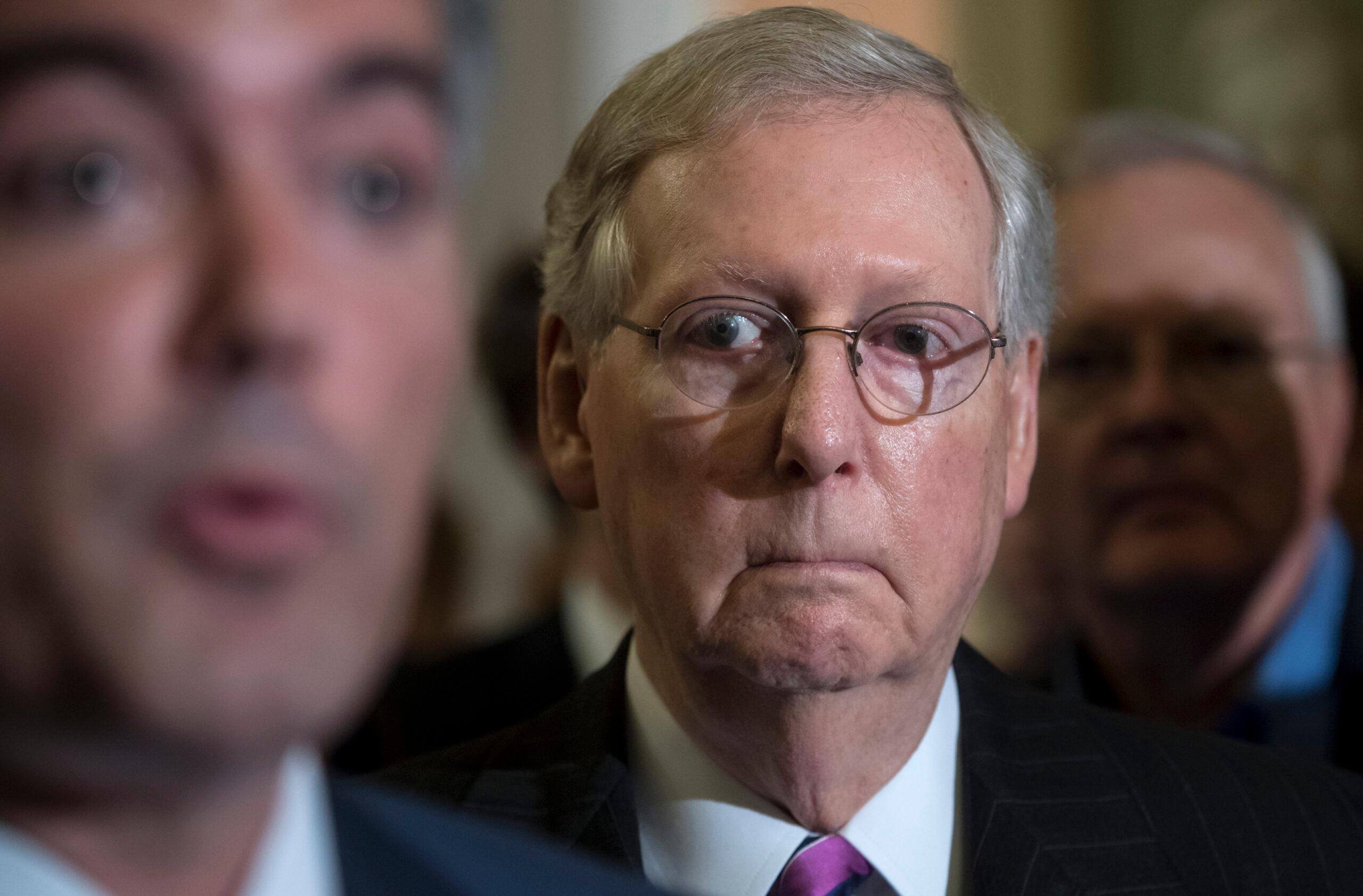
Updated 5:23 p.m.
A massive fight is about to break out over whether the Senate should try and confirm a nominee to the Supreme Court in the wake of the death of Justice Ruth Bader Ginsburg. The donnybrook comes even as Colorado voters will soon get their mail ballots and in some states where early voting is already underway.
The country got a preview of what that fight will look like when Justice Antonin Scalia died in February 2016, nine months before the election. This time, Election Day is barely over a month away.
And everyone’s words and statements from the last fight have already been sent to the front lines.
When then-President Barack Obama nominated Merrick Garland for the Supreme Court in March 2016, Colorado Sen. Cory Garnder said the next president should fill the vacancy.
“Our next election is too soon and the stakes are too high; the American people deserve a role in this process as the next Supreme Court Justice will influence the direction of this country for years to come,” his statement said at the time.
Four years later, when asked if he stood by those words, Gardner sidestepped, saying now is the time to remember Justice Ginsburg.
“There is time for debate, there is time for politics,” he said at the Club 20 candidate forum in Grand Junction. “But the time, for now, is to pray for the family.”
By late Monday, Gardner said he would support a nominee, saying the Senate must decide how to best fulfill its constitutional duty.
“I have and will continue to support judicial nominees who will protect our Constitution, not legislate from the bench, and uphold the law,” Gardner said. “Should a qualified nominee who meets this criteria be put forward, I will vote to confirm.”
Politics were almost immediately front and center when the news of Ginsburg's death broke.
In a statement praising her life, Senate Majority Leader Mitch McConnell also said a Trump nominee would get a floor vote, this after Republicans denied Garland consideration.
Republican strategist Tyler Sandberg expects the political flight over this next confirmation to get ugly in a year that was already a “dumpster fire.”
“This is only going to create more tension, more animosity, more anger in American politics,” he said.
Gardner faces a tough reelection race against Democrat John Hickenlooper. The former governor’s tweet on Friday pressed Gardner to “uphold the commitment he set more than four years ago and allow the president elected in November to make this decision.”
While Gardner has been facing pressure to keep his previous position, Colorado’s other senator, Democrat Michael Bennet, has shifted his. A Bennet spokesperson said the senator thinks the chamber should not confirm a new justice before the election or during a lame-duck session (the months between the election and inauguration). In 2016, Bennet urged Republicans to do their job and consider Merrick Garland.
The difference for Democrats this time around is that McConnell’s insistence in 2016 instituted a new rule.
Bennet, however, did tell volunteers over the weekend that if McConnell feels like he can do this, he will.
“No amount of persuasion or embarrassment or humiliation will change what he’s doing,” he said. “It is a raw exercise in power.”
This back and forth about who said what when will go on for weeks. Sandberg said you can call it whatever you like, but he’s in agreement with Bennet that it all boils down to power.
“The Constitution gives the right to the Senate to either confirm or not confirm or not even hold hearings on a Supreme Court nominee,” he said.
McConnell and Republicans held that power then and they hold it today. They control the Senate 53-47 and there’s no longer a filibuster for supreme court nominees. In fact, there is little Democrats can do to stop the process. The only thing that can stop the process is if Republicans say no. Only Sens. Lisa Murkowski of Alaska and Susan Collins of Maine have taken that stand. The rest potentially stand behind McConnell and Trump.
Democratic Rep. Jason Crow said he called Gardner this weekend to urge him to wait until a president is sworn in next year.
“If that’s President Biden then fine, if it’s President Trump then we’ll deal with that, too. But these are the rules the senate put in place.”
Crow got voice mail.
And Trump is also putting on the pressure. On Fox & Friends Monday morning, Trump criticized Collins and Murkowski for their stand. He also said this vacancy fight will boost Gardner’s chances.
“I think it's going to help Cory Gardner,” he said. “He's a great guy by the way and very, very loyal to the party and loyal to his state.”
In the end, even if it does cost Gardner and other GOP senators in tight races their seats, the fight may be an opportunity too good for Republicans to pass up, said University of Denver politics professor Joshua Wilson.
“That just puts such a conservative majority on to the court that they should have control of the court, for lack of a better term, for quite a few years to come.”
Wilson said the federal judiciary is the GOP’s place “to build a lasting, insulated fortress to defend their interests.”
Some Republicans think it may also energize their voters in the final stretch of the election. Wilson points out there is a flip side — it could also energize Democrats and undecided voters, especially as the Supreme Court is expected to rule on the Affordable Care Act and other important issues this fall. It’s an easy way to show the importance of the court in terms that matter.
“You can put it in terms of health care, put it in terms of women’s rights, put it in terms on minority rights, put it in terms of abortion rights. And so, it could be a way to gain leverage to get those voters out,” he explained.
And that leads to the other big question — timing. Can the Senate do this quickly?
Trump is not expected to announce a nominee until the end of the week. And the Senate was expected to be back in their states for the final stretch of the campaign.
“You start thinking of all those other demands in an election year just weeks away from an election,” Wilson said. “It’s still a tall order, but it’s a major priority for the party.”
Republicans point out that it took just 42 days from Ginsburg’s nomination to her confirmation. For Justice John Paul Stevens it was only 19 days. But those were very different times.
The confirmation process has become a spectacle. On average it now takes 69 days between nomination and confirmation, the Congressional Research Service found. And that could mean confirming after the election— where voters could sweep control of the presidency, the Senate or both out of Republican hands.









